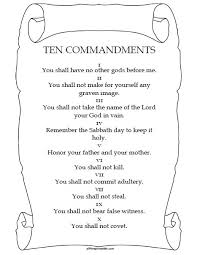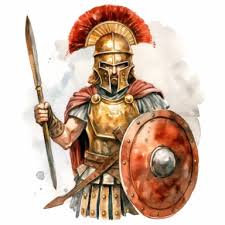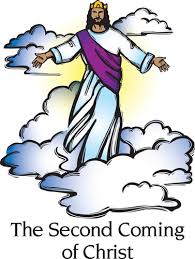/Blog/Blog-With-Us/SHOWERS/I-Thessalonians-Chapter-5-Part-3/?link=1&fldKeywords=&fldAuthor=&fldTopic=0
I Thessalonians 5:12-13 – We ask you, brothers, to respect those who labor among you and are over you in the Lord and admonish you, and to esteem them very highly in love because of their work. Be at peace among yourselves.
Paul has now come to the closing portion of his letter where he briefly instructs believers on several last-minute but important points. 
It is safe to assume that these final reminders were given to address some minor problems within the Thessalonian church. As we go through our study, we will see that these minor issues can pop up in any church, at any time. For this reason, it’s good for us to study them.
Based on verses 12-13, it becomes apparent that there were some people in the congregation who did not treat their pastors and/or leaders with due respect.
In this particular instance, Paul is not talking about himself (or Silas or Timothy). He is referring to leaders that he (or his team) put into place before they left. We know this because in every church Paul founded, it was his common practice to appoint elders, deacons, and bishops to lead the church on a daily basis:
Philippians 1:1 - Paul and Timothy, the servants of Jesus Christ, to all the saints in Christ Jesus who are at Philippi, with the bishops and deacons:
Titus 1:5 - For this cause I left you in Crete, that you should set in order the things that are lacking, and ordain elders in every city, as I had appointed you:
It is the job of these individuals to ‘labor’ within the church (I Corinthians 15:10 & 16:16). The word ‘labor’ implies wearisome or difficult toil and constant work. It perfectly describes the role of pastors.
It is the responsibility of pastors and leaders to dedicate themselves to prayer, to reading and meditating on the word, and to hearing the voice of God. You may not see them doing this, but it goes on behind the scenes all the time.
Their burden of responsibility is enormous; they must lovingly give the congregants spiritual truth, warn them of imminent dangers, encourage them to perform their Christian duties, assist them in the use and development of spiritual gifts and correct those who go astray.
In order to effectively perform these duties, the pastors and leaders must possess wisdom (both worldly and spiritual), maturity and a thorough knowledge of the scriptures. They must be able to hear the voice of Holy Spirit. They should be people of upright character, discretion and patience. They must have the ability to hear both sides of an issue without jumping to conclusions.
I don’t know about you, but I’m exhausted just reading this job description!
As members of a church congregation, we should all stop and remind ourselves that there are NO perfect people. Pastors and church leaders are undoubtedly hard working, God-fearing men and women, but they aren’t perfect. Although they are mature and wise, they too will make mistakes. They will occasionally say something they wish they hadn’t. Sometimes they may fail or let you down. 
But for the most part, I think we can all agree that they are amazing people, appointed to their positions of authority by God himself. God has given them the tools and abilities to lead the congregation just like a shepherd leads his flock.
For instance, they offer solid, nutritious spiritual food through preaching and teaching. They will lead you into waters of refreshment/showers of blessing through praise and worship. They will help you identify and steer clear of ‘wolves in sheep’s clothing’. They will encourage you to grow in faith and if you go astray, they will bring you back.
They will faithfully and lovingly walk with you during some of the most significant events of your life – when you are baptized, when you have children, when you marry (or divorce), when you have serious emergencies, and when someone you love dies. Their labor is a gift from God to us - and what a wonderful gift it is!
On top of all that, pastors and leaders bear another burden as well - they will give an account of their stewardship over the flock. Supreme authority does not reside with pastors; they themselves operate in submission to the one in authority over them, which is Jesus. As such, they must lead with a spirit of meekness and love. They must use their positions of authority to edify, guide, protect and feed the flock just as Christ would do.
John 10:11 – I [Jesus] am the good shepherd: the good shepherd gives his life for the sheep.
Without a good leadership team, the church in Thessalonica would soon have folded. The same is true in churches today. God has appointed pastors, teachers, elders and others to hold positions of authority in the church. When these leaders are strong and diligent, the church is an active and powerful part of the body of Christ.
But if the leadership is distracted or busy or spiritually lazy, the church will, at best, be ineffective in this world. Worse yet, it could become a hindrance to the kingdom of heaven.
If you are having trouble giving respect to your pastors and leaders, there must be a reason. Why not examine yourself first?
- Are you holding some kind of grudge because you feel like they let you down? If so, go clear the air with them.
- Do you feel like they haven’t been preaching or teaching sound doctrine? Again, you owe it to them (and yourself) to meet them privately and discuss the matter.
- Maybe you don’t appreciate your pastors and leaders because you have forgotten just how much they do for you. Why not take some time to recall the moments in your life when they were there with truth, love, support and comfort?
In the end, you need to have a true spirit of appreciation, thanksgiving, obedience and love for your spiritual leaders. If you simply cannot give them that, it may be time to change churches.
Paul goes on to say that in addition to respecting spiritual authority, the congregation of believers is to be at peace among themselves. That’s because nothing kills a church quicker than disunity.
Satan is always on the lookout for an opportunity to sow discord and strife within a congregation. He knows that when arguments, strife and division prevail, all work in the church will cease. However, where mutual love, respect, forgiveness and unity are present, successful ministry will follow. That’s why the apostle James tells us to admit our faults and to pray for one another:
James 5:16 – Confess your faults one to another, and pray one for another, that you may be healed. The effectual fervent prayer of a righteous man avails much.
Operating in this manner promotes peace and unity in the body of Christ.
One additional note: Some scholars believe that having ‘peace among themselves’ does not refer to the congregation as a whole, but to each individual member.
Those who hold this viewpoint feel that Paul was referring to the peace of each individual in their own heart, which can only be obtained by being mindful of the sacrifice of Christ and his forgiveness of their sin.
When we each have peace within ourselves, we are at peace with those around us.
I Thessalonians 5:14 – And we urge you, brothers, admonish the idle, encourage the fainthearted, help the weak, be patient with them all.
The responsibilities mentioned in this verse are given to ‘brothers’. In other words, they are not just for the leadership of the church. They are given to all members of the body.
Admonish the idle: To admonish is to warn against danger or to notify of a fault.
The original Greek word for ‘idle’ is actually a military term. It refers to men who are ‘out of their ranks’ or those who are disorderly, unoccupied/inactive, insubordinate and meddlesome. 
As we noted in an earlier post, there were people in the Thessalonian church who were idle – they had quit their jobs, they were living off the donations of others, and they spent their time gossiping and stirring up trouble in the church.
Notice that people like this are not to be ignored or put up with. They are to be notified or warned that their actions are unacceptable and must be changed. This is for their own good; if they continue on this path it will lead to sins of both commission and omission (James 4:17).
It is also for the good of the entire church because people who consistently act this way cause animosity and division in the church.
Thus, it is the duty of each member of the church to humbly and meekly confront those who are living contrary to the commands of the gospel. This should be done quietly and in love whenever possible. However, there may be times when a sharp reproof is needed to get that person back on the straight and narrow path. I suggest consulting the leadership of the church before giving a strong rebuke like this.
Encourage the faint of heart/help the weak: The faint of heart are Christians who are staggering under a heavy load. For example, in the Thessalonian church, some members were staggering under the weight of grief because of their lost loved ones. Others were ‘faint of heart’ because they were suffering persecution or severe trials.
The term ‘weak’ applies to believers who are without spiritual strength or stamina. They are spiritually fearful. For example, they may live in fear of God’s wrath, or have feelings of unworthiness due to a consistent sin. In the Thessalonian church this also included people who were under the bondage of ceremonial rites (the Jews) and had no confidence in their Christian liberty.
These brothers and sisters are not to be reprimanded like the idle. They are to be encouraged and strengthened by the members of the church.
Romans 15:1-2 – We who are strong have an obligation to bear with the failings of the weak, and not to please ourselves. Let each of us please is neighbor for his good, to build him up.
We can’t help but notice that many times these faint or weak members of the church are simply ignorant of what God says. For instance, some of the Thessalonian believers staggered under the weight of grief because they did not know that God was going to resurrect the dead when he returned for the living.
With sound teaching, the support of mature Christians and personal spiritual growth, believers who are weak or faint of heart will grow in faith and become spiritually strong.
Here is an interesting point to consider: There comes a time in the life of EVERY Christian when they are discouraged or disheartened because they have suffered a defeat at the hands of Satan, or they made a critical mistake/missed an opportunity, or they are waiting for an answer to prayer/the fulfillment of a promise which never seems to come.
In short, they are spiritually struggling. Even mature believers can experience this from time to time. In fact, if you’ve been a Christian long enough, you’ve probably experienced this yourself.
As you think back on those struggles, one thing becomes very clear - There was a point when you received deliverance. Eventually you walked through the consequences of your failure, or God answered your prayer, or you saw the fulfillment of the promise.
Coming through such a trial (or failure) gives you experience in dealing with these situations. It gives you a testimony to the faithfulness of God.
In a sense, these testimonies and experiences are the property of the entire church. The victories and triumphs of every believer are the means by which others are encouraged and strengthened to continue the fight or hold on to their faith until the promise becomes reality. Simply stated, your testimony can make a difference in someone else’s life. Your victory gives them hope.
You and I may want to keep these testimonies and experiences a secret, because we don’t want to admit to having any problems in our lives. However, if we think this way, we are walking in pride. We are denying God the glory he deserves for moving on our behalf.
Don’t get me wrong – we don’t want to constantly bring up each other’s faults or to go into unnecessary details about our moral failures. But by the same token, the trials we have endured and the victories we have won are of incalculable value to those who are currently struggling with the same problems. 
Let me say it one more time: Your testimony, your support, and your prayers could be the very means by which struggling saints are encouraged and strengthened until they find their own deliverance.
So be a blessing to others – share your story!
Be patient towards all men: As a wise person once noted, the idle, the weak and the faint of heart will, without a doubt, exercise your patience and try your temper!
The fact is, each one of us is at a different stage in our Christian maturity. Each one of us faces unique situations and temptations. Likewise, each one of us deserves the love and support of our fellow church members.
Romans 15:5-6 – May the God of endurance and encouragement grant you to live in such harmony with one another, in accord with Christ Jesus, that together you may with one voice glorify the God and Father of our Lord Jesus Christ.
Remember, mature believers should have a healthy dose of the fruit of the Spirit growing in their lives. This includes kindness, gentleness, patience, long suffering and self control.
As we practice patience and long suffering, God is glorified and the church is strengthened.
I Thessalonians 5:15 – See that no one repays anyone evil for evil, but always seek to do good to one another and to everyone.
Paul goes on to say that Christians should never be in a position where they are ‘repaying evil for evil’ or, in other words, we should never be seeking revenge or acting in a vindictive manner.
I Peter 3:9 – Do no repay evil for evil or reviling for reviling, but on the contrary, bless, for to this you were called that you may obtain a blessing.
Keep in mind that this applies to what might be described as personal revenge. It does not mean that we cannot challenge evil in our government or society.
Then Paul goes one step further – he reveals that it isn’t enough to simply refrain from revenge. We must go the extra mile by showing goodness to all people, even those who have injured us. ‘Good’ includes anything that is honest, morally pure, profitable and glorifying to God. It includes good works that are done in faith from an attitude of love.
Romans 12:21 – Be not overcome with evil, but overcome evil with good.
The phrase ‘always seek’ carries the connotation of ‘pursing with eagerness’, like a hunter pursues his prey. The idea is that when someone wrongs you, you should respond by actively looking for a way to bless them by doing something good.
Galatians 6:10 – As we have therefore opportunity, let us do good unto all men, especially unto them who are of the household of faith.
As Christians, we have a special relationship with those in our local body. Nevertheless, good is to be poured out upon all – sinners as well as the saints; upon the unlovely as well as those we love; upon the evil and on the righteous. This gives us the chance to strengthen believers and witness to the lost (Matthew 5:16).
Let’s circle back to the Thessalonian church. The majority of believers in that group were Gentiles who were known for their long-standing feuds with other people. The idea of reacting with goodness instead of revenge was a new and astonishing concept for them. It was difficult to mentally grasp, much less live out in their daily lives!
This was why the members of the church (not just the leaders) were instructed to encourage, strengthen and admonish each other.
Let me offer you some encouragement:
As Christians, good works are often second nature to us. But there are those times when we find ourselves being judgmental about a situation or a person. During those times, we need to stop, take a deep breath, and remind ourselves that in the matter of practicing good, we must let Jesus be our example:
Acts 10:38 – How God anointed Jesus of Nazareth with the Holy Spirit and with power: who went about doing good, and healing all that were oppressed of the devil; for God was with him.
If Jesus only did good some of the time, or if he judged people instead of showing them goodness, then we would have the right to do that as well. But obviously, that was not the case.
As Paul teaches us, we should actively be pursuing good, just as a hunter actively purses his prey. We should be ready to show that goodness to sinners as well as saints.
Hebrews 10:24 – And let us consider how to stir up one another to love and good works…
Notice that scripture not only encourages us to do good works, it encourages us to think about ways to stir up good works in our fellow man! Why not practice that this week?
Let me offer you some relief:
In today’s post, Paul instructs us NOT to render evil for evil, or in other words, not to seek revenge.
Let’s be honest – there are certain circumstances where revenge seems like a good idea.
But, like everything in the kingdom of darkness, that is a lie. Revenge doesn’t heal you; it poisons your life and brings death. It doesn’t set you free; it binds you and makes you a miserable person. Revenge will destroy your mind and heart, rob you of your time, kill your relationships, and steal your peace.
So stop and ask yourself this question: Who likes to steal, kill, destroy? Who wants to keep you in bondage through sin? That’s right – our enemy Satan. It’s obvious that the desire for revenge springs from your fallen nature/sinful flesh. Therefore, it is something that must be crucified:
Galatians 5:24 – And those who belong to Christ Jesus have crucified the flesh with its passions and desires.
The bottom line is that if you want/need some relief in your life, get rid of revenge (and his wicked step brother, unforgiveness)!
Let me offer you some strength:
‘Admonishing the idle’ or correcting another believer in the church is not something that any of us want to do. Most of us avoid it at all costs.
But if we do it properly, it can be a blessing and a benefit to the idle person and to the whole church. The first step is actually to examine your own motivation. Are you truly concerned about the spiritual state of your fellow Christian, or are you acting out of anger or pride?
Anytime we look to correct another, it should be done out of true concern and in a humble manner:
Galatians 6:1 - Brethren, if a man be overtaken in a fault, you who are spiritual, restore such a one in the spirit of meekness; considering yourself, lest you also be tempted.
If you try to correct a brother or sister with any other motivation, you will just be causing more trouble in the church. If you aren’t sure, speak to the pastor or one of the elders before you proceed.
Furthermore, if you feel called to help with correction, you should know that it isn’t simply a matter of pointing out a sin – you are required to help restore this person back to spiritual health.
In essence, you are taking on some of the burden of walking them through the situation. You should be involved in helping them see the truth, praying with them and generally supporting them until they are spiritually restored.
























 st time you thought about or meditated on the reality of the return of Christ, the resurrection of the dead, or your own state of spiritual watchfulness?
st time you thought about or meditated on the reality of the return of Christ, the resurrection of the dead, or your own state of spiritual watchfulness? 











 Obviously, every Christian truly believes that Jesus died on the cross and rose again on the third day. These are fundamental articles of our faith; nothing is more certain and more firmly believed. Indeed, his atoning sacrifice and resurrection are the bedrocks of Christianity. They are the basis of our peace, consolation, salvation and joy. Without these concepts, there would be no Christianity!
Obviously, every Christian truly believes that Jesus died on the cross and rose again on the third day. These are fundamental articles of our faith; nothing is more certain and more firmly believed. Indeed, his atoning sacrifice and resurrection are the bedrocks of Christianity. They are the basis of our peace, consolation, salvation and joy. Without these concepts, there would be no Christianity!

 encouragement on your coworkers, clients and vendors. This includes casual encounters like interacting with the folks at the grocery store or the hardware store.
encouragement on your coworkers, clients and vendors. This includes casual encounters like interacting with the folks at the grocery store or the hardware store.